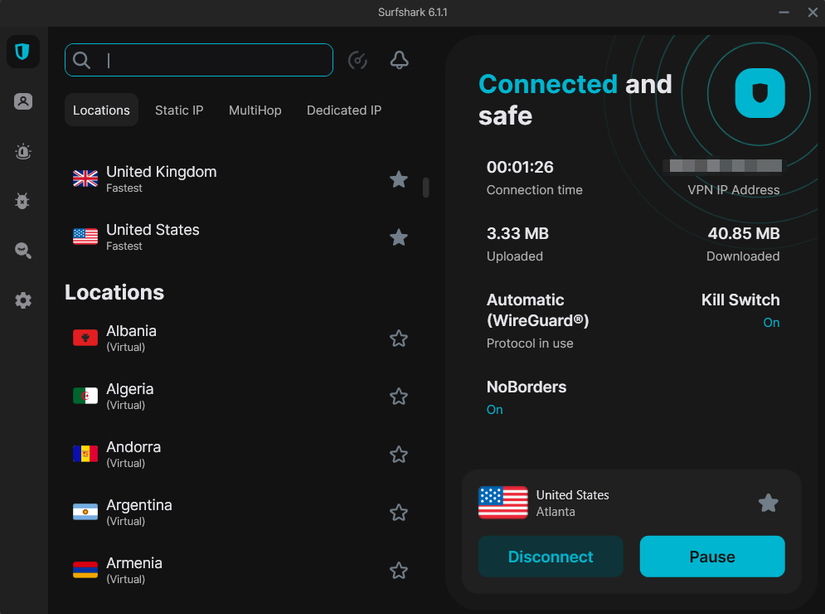Public Wi-Fi can be pretty enticing when you come across it.
With mobile hotspots providing embarrassingly slow speeds and the ever-increasing importance of staying connected, free internet out in the wild can seem like a no-brainer, even if you aren’t doing anything too taxing on your data.
Unfortunately, the reality is that using public Wi-Fi, particularly the kind that isn’t password-protected, can have some decidedly negative impacts on your online experience, from compromised privacy to increased data collection.
Luckily, there are ways you can make it safe.
The problem with free public Wi-Fi
It’s free for a reason, and not a good one
We’ve all been there. Sitting in a coffee shop or an airport terminal, needing a bit more juice from the internet than our meager smartphone data can muster.
After all, these 4k movies and slideshow presentations aren’t going to download themselves, are they?
By a stroke of luck, the internet logo in the notification bar of your tablet or laptop features a question mark, which means that there are available networks in the area that you can connect to.
You open it up and there’s an innocuous, unprotected network that’s begging to be clicked by an unsuspecting individual, with nary a password requirement in sight.
You click it to connect and, presto, you’re flying through the internet faster than ever without a care in the world.
However, if you’re using public Wi-Fi, you really should have a care in the world, because the convenient perk is not nearly as free as people would have you believe.
While you aren’t necessarily paying with your hard-earned money, you are paying with your valuable personal data, which can have a negative impact on your online privacy.
In most cases, free public Wi-Fi networks require users to agree to terms and conditions, which no one has ever read in the history of humankind.
If you had read it, though, you’d find —buried within all the jargon and legalese — that signing on gives away your right to not have your data collected in a meaningful way.
This can lead to aggressive ad targeting and even cybersecurity threats, depending on how that data is used.
All that to say, free public Wi-Fi comes at a much higher cost than many users realize. And that cost is your forfeiture of online privacy in service of data collection platforms that want to use information about you to make more money.
VPNs to the rescue
How to use public Wi-Fi safely
Despite the potential downsides, the lure of free public Wi-Fi can be too strong for some.
Working in a coffee shop is a time-honored tradition among remote workers worldwide, and frantically downloading a movie before your flight starts boarding is a rite of passage among the procrastinating masses.
If you find yourself in dire need of free public Wi-Fi, the only way to really be sure you are free of prying eyes is with one of the best VPNs.
These services are designed with online privacy in mind, encrypting the entirety of your internet activity with the click of a few buttons.
All you do is make sure your VPN is active and connected to a specific server before logging in to a free public Wi-Fi network, and you’ll be all set to explore the far reaches of the internet without having to worry about someone tracking or hacking you.
No ad trackers, no cyber criminals, not even your tech-savvy ex will know what you’re doing online, because VPNs mask your IP address to prevent any valuable data from being collected.
Finally, some peace of mind to go along with your free public Wi-Fi.
Security features abound
VPNs do more than just make public Wi-Fi usable
The online world is lousy with potential security threats, which is why tools like VPNs can be so valuable.
Even better, most providers offer a range of other helpful security features and settings that can make your online experience more secure.
Surfshark, for example, provides tools like private web search, malware alerts, and breach warnings, all of which are extremely helpful in making sure your personal data is protected throughout the web.
On top of that, helpful settings like auto-connect help ensure you’re actually taking advantage of the service at all times, so your information is never vulnerable for a second, even if you are on the seediest of public Wi-Fi networks.



